ABA for Academic Achievement in Autism
Discover how ABA for academic success in autism boosts learning and social skills for lasting achievements.
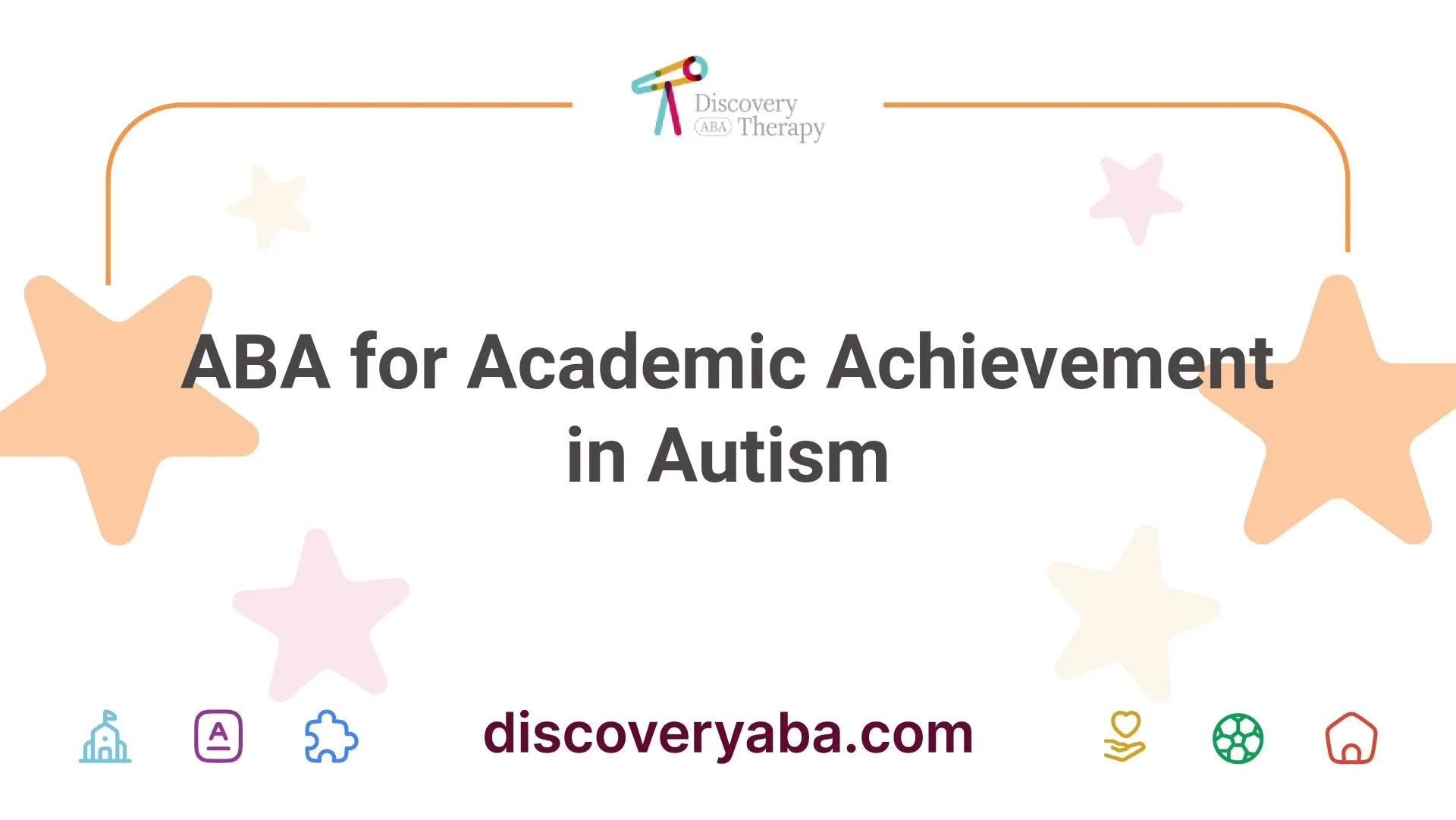
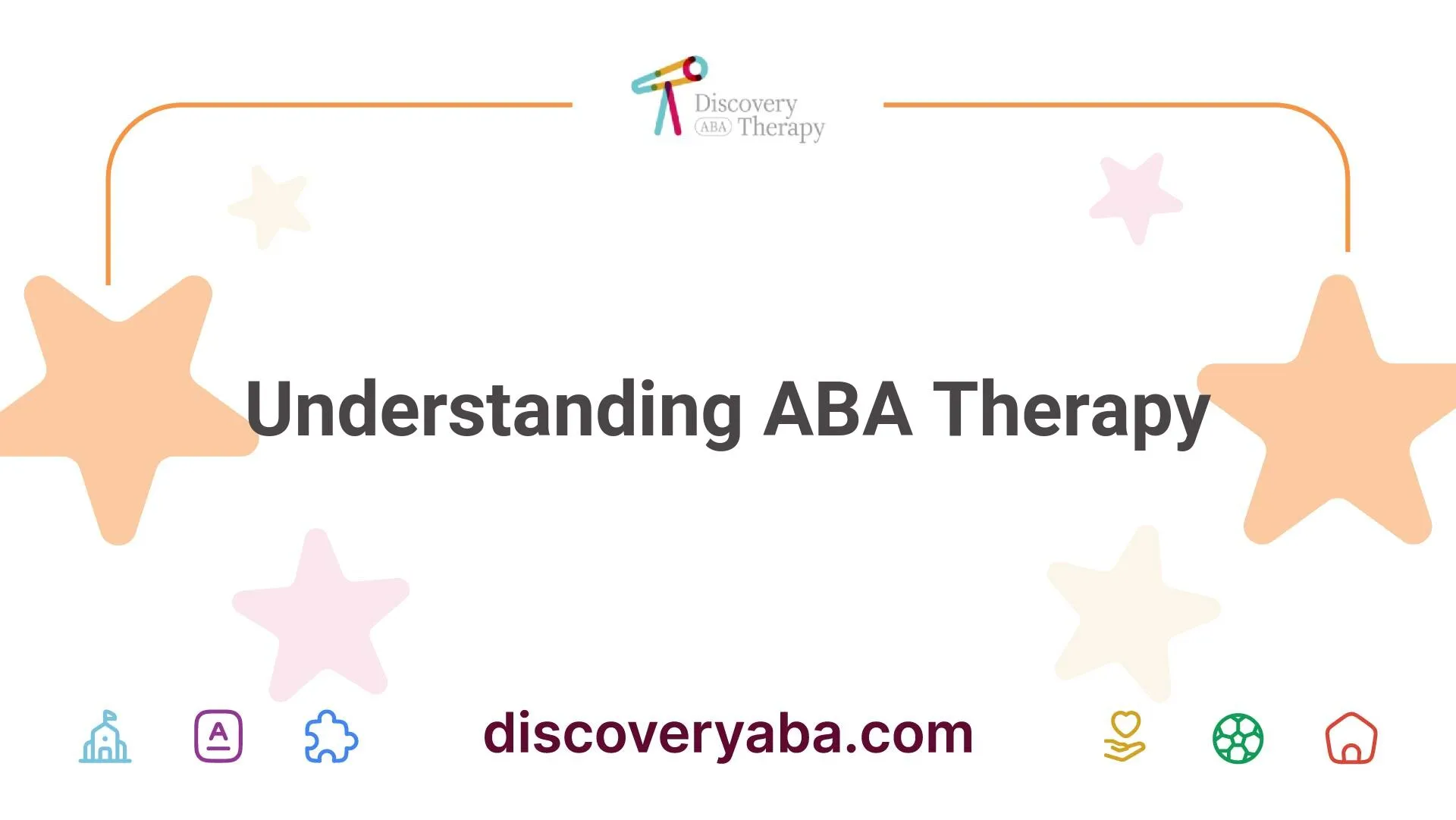
Understanding ABA Therapy
ABA Therapy Details
Applied Behavior Analysis (ABA) is a therapeutic approach that employs evidence-based techniques to promote positive behavioral changes in individuals, particularly those with Autism Spectrum Disorder (ASD). It is widely recognized as an effective method in both general and special education environments. In these settings, educators utilize ABA strategies to manage classroom behavior, enhance group learning, and teach essential academic skills, such as reading and mathematics.
ABA programs are tailored to meet the specific needs and goals of individuals. These programs not only target academic skills but also focus on social skills, self-care, and communication. This individualized approach fosters a sense of empowerment and encourages active participation in the learning process [2]. The flexibility of ABA allows its application in varied contexts, ranging from structured classroom settings to everyday situations like playtime and meal prep [1].
Importance of ABA Therapy
The significance of ABA therapy lies in its systematic approach to improving behavior through proven strategies. It focuses on understanding the antecedents and consequences of specific behaviors, which helps educators and therapists design interventions that enhance desired skills while reducing challenging behaviors. The capability to adapt interventions based on ongoing data analysis ensures that the ABA approach remains responsive to the evolving needs of the individual, maximizing their potential for growth [1].
Moreover, individualized ABA programs have been shown to increase motivation and engagement in learners, leading to greater success in therapy. Customization enables individuals to take ownership of their progress, significantly contributing to satisfaction with the intervention [2]. The ability to integrate ABA strategies into various aspects of life not only supports academic achievement but also enhances social and self-care skills, creating a well-rounded foundation for individuals with autism, ultimately laying the groundwork for academic success in autism through targeted and effective strategies.
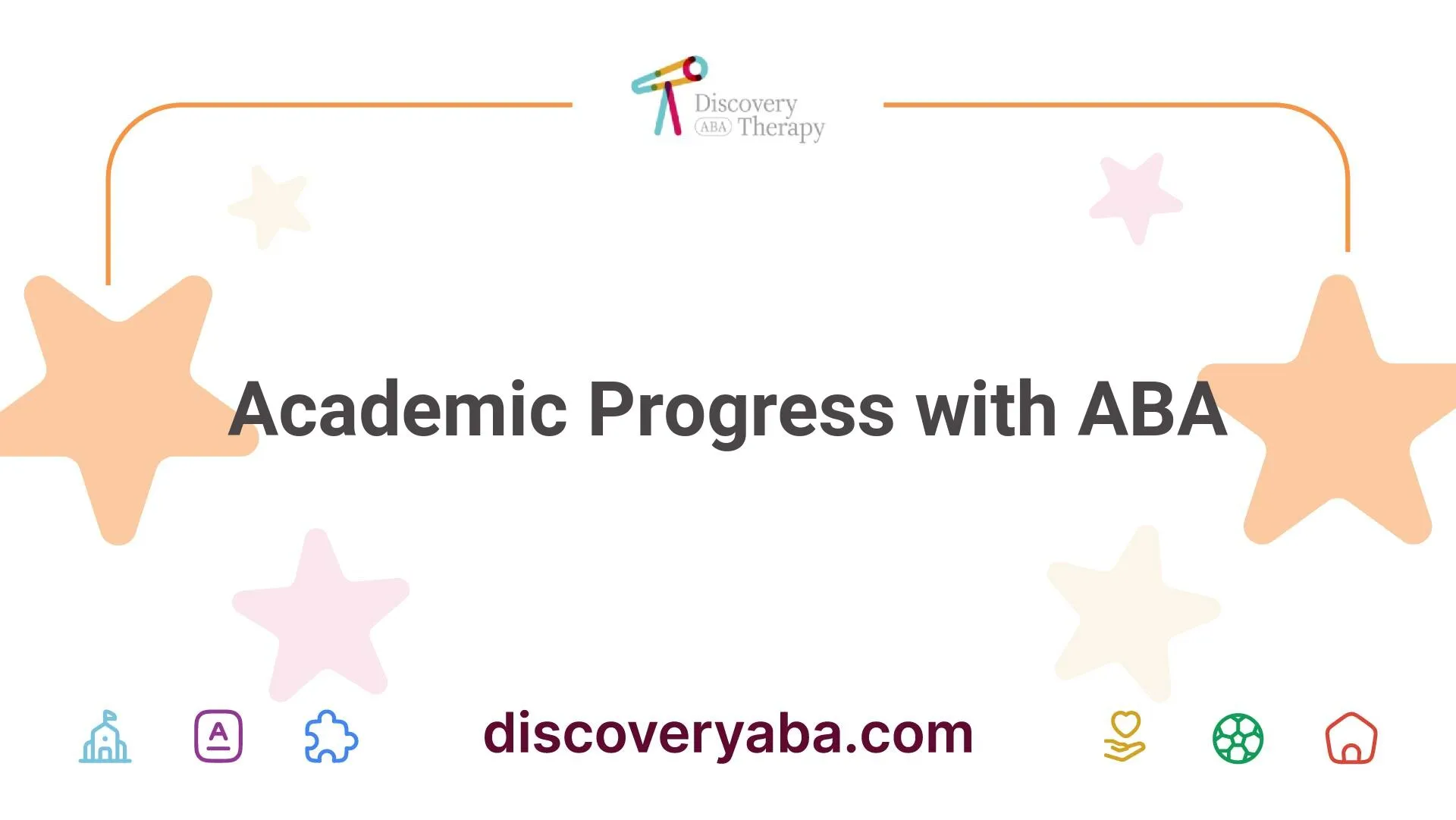
Academic Progress with ABA
Applied Behavior Analysis (ABA) therapy has shown significant potential in enhancing academic performance for children with Autism Spectrum Disorder (ASD). This section will focus on two primary areas of academic progress: academic skills improvement and social skills enhancement.
Academic Skills Improvement
Research indicates that academic skills are among the areas where children with ASD demonstrate the most capability for independent performance after receiving ABA therapy. A study involving 16 children with ASD showed that, following treatment, participants were able to independently complete various tasks, especially those linked to academic skills.
Skill TypeIndependent Performance PercentageAcademic SkillsHighSocial SkillsModerateActivities of Daily Living (ADLs)Moderate
This data reveals that children can significantly improve their academic skills through the structured interventions provided by ABA. Teachers and caregivers may find that with targeted strategies, students can better engage with curricular content, complete assignments, and participate in classroom activities more effectively.
Social Skills Enhancement
In addition to academic skills, ABA therapy enhances social skills among children with autism. The ability to interact with peers and teachers is crucial for academic success. The same study highlighted above reports that social skills improved alongside academic abilities.
By integrating social skills training into ABA programs, children learn to communicate, share, and collaborate, which are essential components of the academic environment. This training includes techniques for teaching emotional expression with aba and aba for social communication in autism, emphasizing how to read social cues and respond appropriately.
Social Skill TypeImprovement ObservedPeer InteractionSignificantSharing and Turn-TakingModerateVerbal CommunicationSteady Improvement
The enhancements in social skills not only foster better peer relationships but also create a more conducive learning environment. As children become more comfortable interacting with their peers and teachers, their ability to focus on academic tasks improves, promoting overall success in school settings.
Integrating ABA strategies can ultimately lead to comprehensive development for children with ASD, aiding their academic achievement and social interactions. For more insights on specific ABA applications, consider exploring areas such as aba for self-care skills in autism and aba for independence in adolescents with autism.
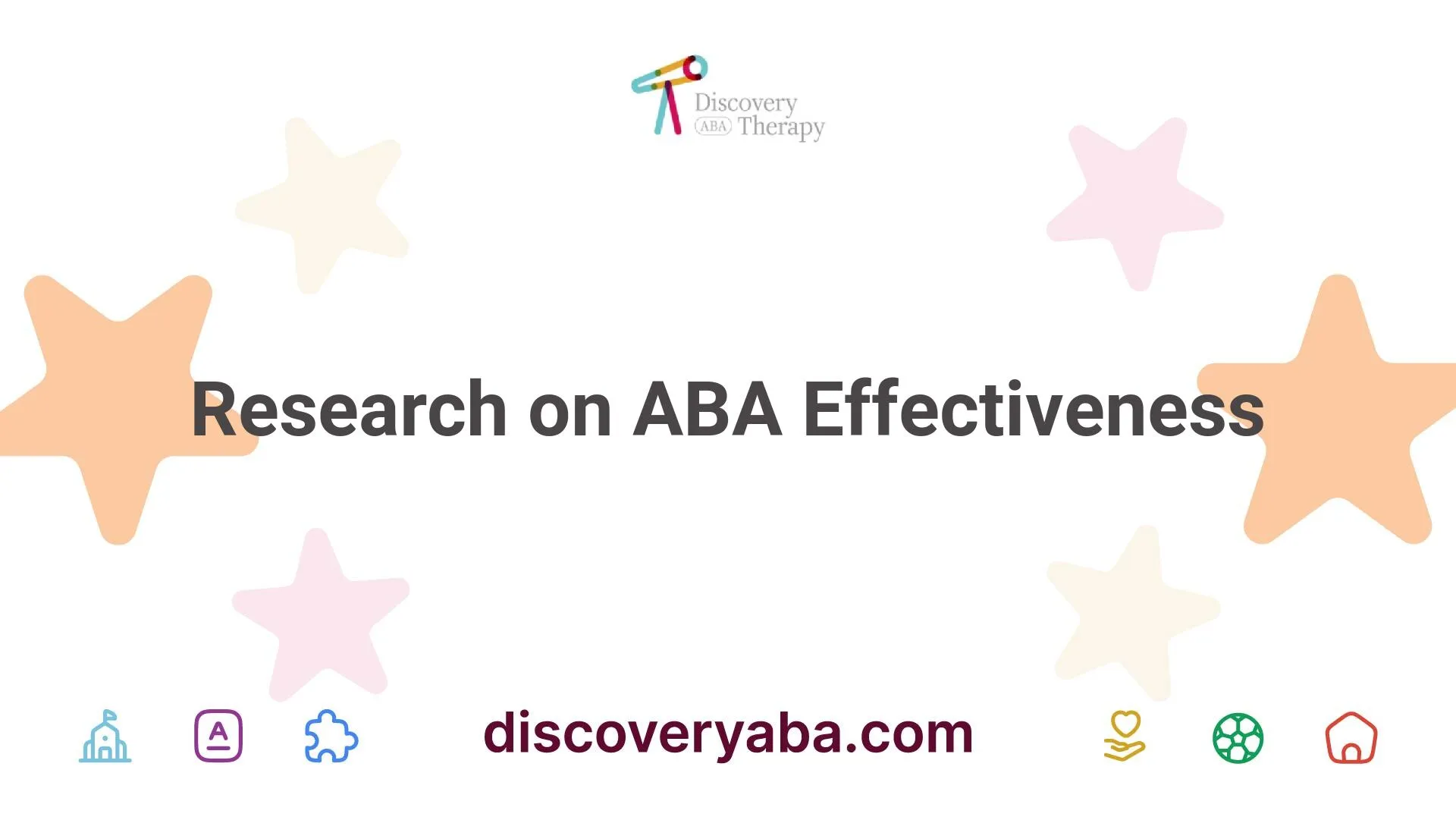
Research on ABA Effectiveness
Research consistently supports the effectiveness of Applied Behavior Analysis (ABA) in enhancing educational outcomes for individuals with Autism Spectrum Disorder (ASD). Understanding the relationship between ABA and academic skills can guide parents and caregivers in their choices regarding interventions for their children.
Study on ABA and Academic Skills
Multiple studies highlight the importance of ABA in improving academic performance. For instance, early intervention has been shown to play a crucial role in predicting long-term academic success in children with ASD. Research indicates that early cognitive abilities are closely linked to academic progress, emphasizing the need for timely and effective interventions [4].
A focus on cognitive tasks, such as cognitive flexibility and working memory, reveals a moderate correlation with academic achievement in higher education settings. This underscores the significance of executive functioning skills, which can be enhanced through ABA strategies.
Skill AreaImpact of ABACognitive FlexibilityModerate correlation with academic progressWorking MemoryImportant for education outcomes
Benefits of ABA Therapy
The benefits of ABA therapy encompass a wide array of skills beyond academics. While the main focus often lies in improving educational performance, ABA also fosters essential life skills and social interactions. Techniques used in ABA can be applied in both formal educational settings and everyday situations like play and mealtime, contributing to a well-rounded development [1].
Two federal laws, the Every Student Succeeds Act (ESSA) and the Individuals with Disabilities Education Act (IDEA '04), mandate the use of evidence-based academic and behavioral practices for children with autism. This indicates a recognition of the necessity for effective interventions like ABA in educational contexts [5].
Overall, ABA serves as a critical tool not only for academic achievement but also for enhancing life skills, emotional expression, and social communication in individuals with autism. The comprehensive nature of ABA positions it as a preferred approach for parents and caregivers seeking effective support strategies. For a closer look at how ABA can aid in different areas, including self-care skills and social communication, explore our other resources.
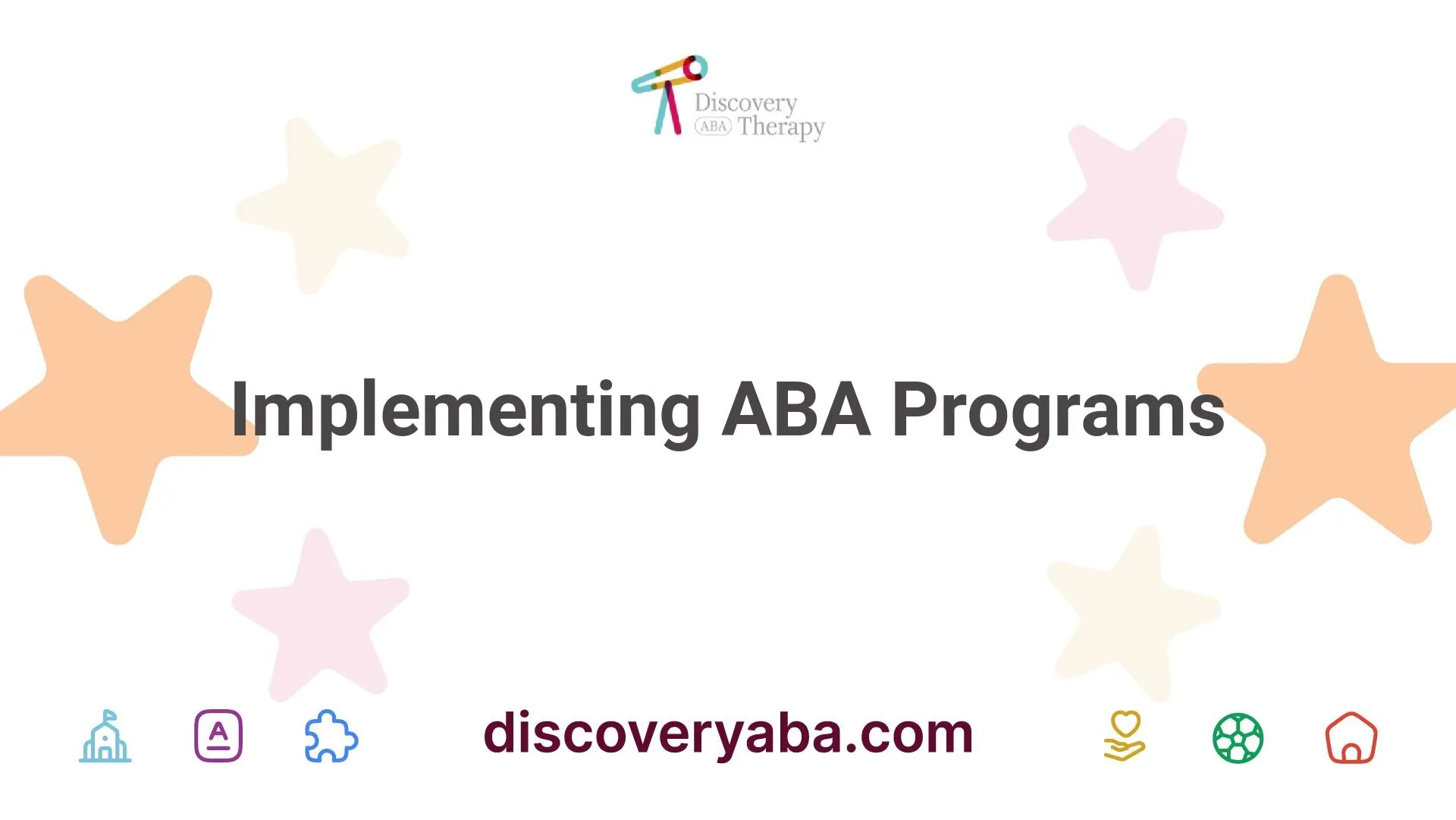
Implementing ABA Programs
Effective implementation of Applied Behavior Analysis (ABA) programs is essential for promoting academic success in individuals with autism. This section discusses strategies for ABA programs and the importance of individualized approaches.
Strategies for ABA Programs
Implementing ABA techniques involves several key strategies that can be applied in various settings, including structured classroom environments and everyday situations like playtime or mealtime. These strategies include:
StrategyDescriptionIndividualized InstructionCustomized teaching methods to align with each student's needs.Data CollectionContinuous tracking of behaviors and educational progress.CollaborationWorking together with the IEP team for cohesive support.AccommodationsAdjustments to create a supportive learning environment.
These strategies work together to create a conducive learning atmosphere, ultimately supporting the goals established in the learner's IEP.
Individualized ABA Programs
Individualized ABA programs are tailored specifically to the strengths, challenges, and goals of each student. This personalization is critical for ensuring that the programs are effective and meaningful. Key components of individualized ABA programs include:
ComponentImportanceSMART GoalsProvides a clear framework for achieving specific outcomes.Evidence-Based PracticesEnsures the use of effective strategies supported by research.Engaging StakeholdersFosters collaboration, ensuring all parties are aligned for success.
To create momentum toward academic success with ABA, it is vital for parents and caregivers to actively participate in developing and implementing these tailored programs. By doing so, they help raise the bar for what can be achieved in the educational journey of individuals with autism. For more effective strategies, consider exploring resources about aba for independence in adolescents with autism and aba for transitioning between activities.
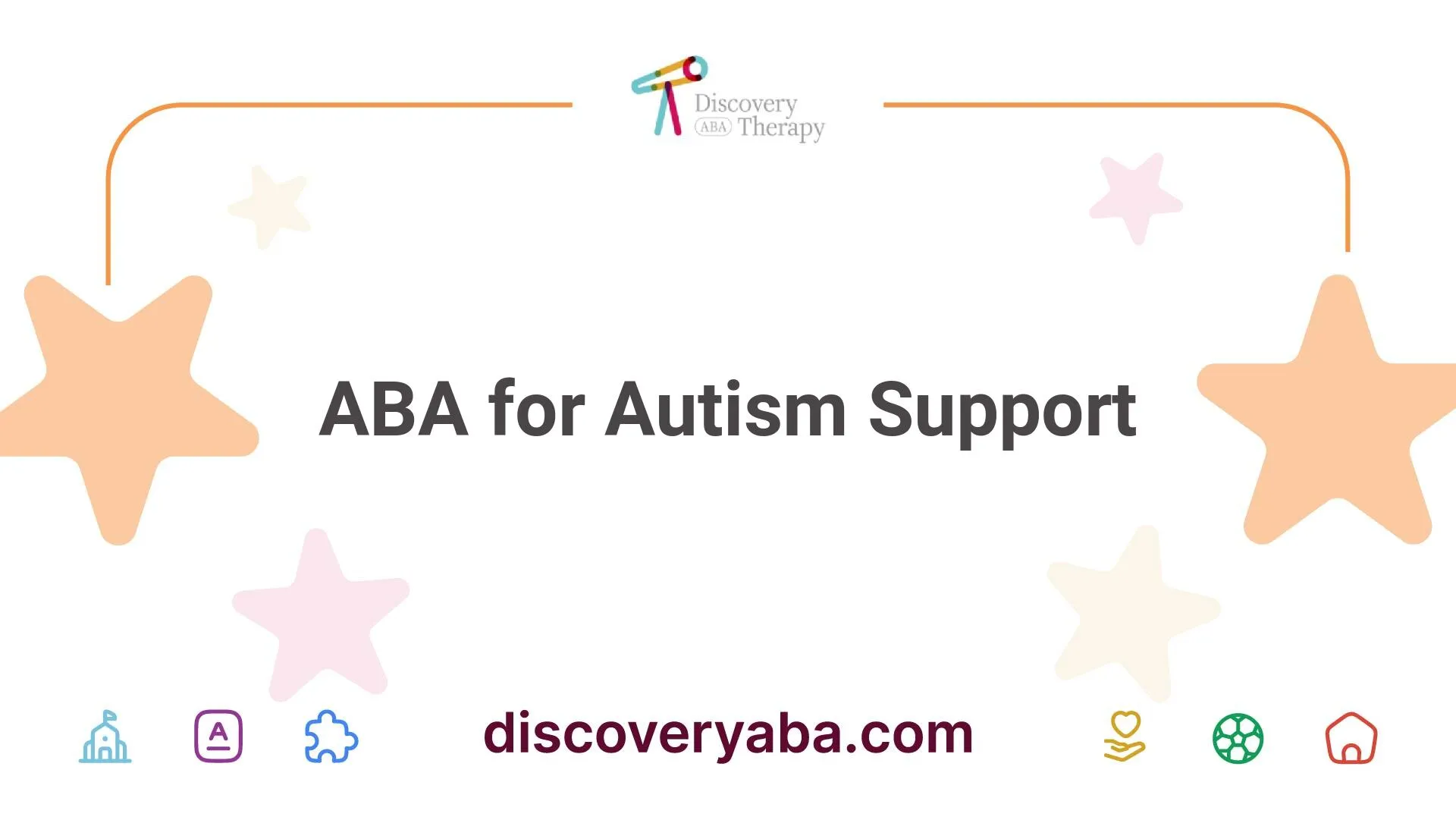
ABA for Autism Support
Tailored Support Programs
Tailored support programs are essential for students with autism, allowing for individualized attention that caters to their unique needs. Individualized ABA programs foster a sense of empowerment and motivation in individuals, promoting engagement and participation in educational activities [2].
These programs often incorporate a variety of learning strategies and techniques, such as social skills training, academic support, and behavioral interventions, all aimed at enhancing the academic experience. By focusing on the individual's strengths and challenges, parents and caregivers can work closely with educators and ABA therapists to create an optimal learning environment.
Key Features of Tailored Support ProgramsIndividualized goals and objectivesCustomized teaching methodsFocus on strengths and interestsRegular progress monitoringFamily involvement in planning
Transition to College with Autism
The transition from high school to college can present additional challenges for individuals with autism. To support a smooth transition, it is essential to establish a comprehensive support system that includes college counselors, disability services, and peer mentors [7].
Understanding the importance of support programs tailored for students with autism in colleges is crucial for their success. Factors such as distance from home can impact the level of comfort and support a student feels, making proximity to home a relevant consideration [7].
Accommodations can also play a significant role in supporting college students with autism who have sensory differences. Providing options such as allowing hats, sunglasses, earplugs, and alternative writing instruments can help create a more comfortable learning environment.
By focusing on these tailored support programs and strategies, parents and caregivers can help ensure that young adults with autism have the resources and assistance they need to succeed academically. This ongoing journey towards independence can be bolstered by the effective application of ABA principles, enhancing the overall educational experience.
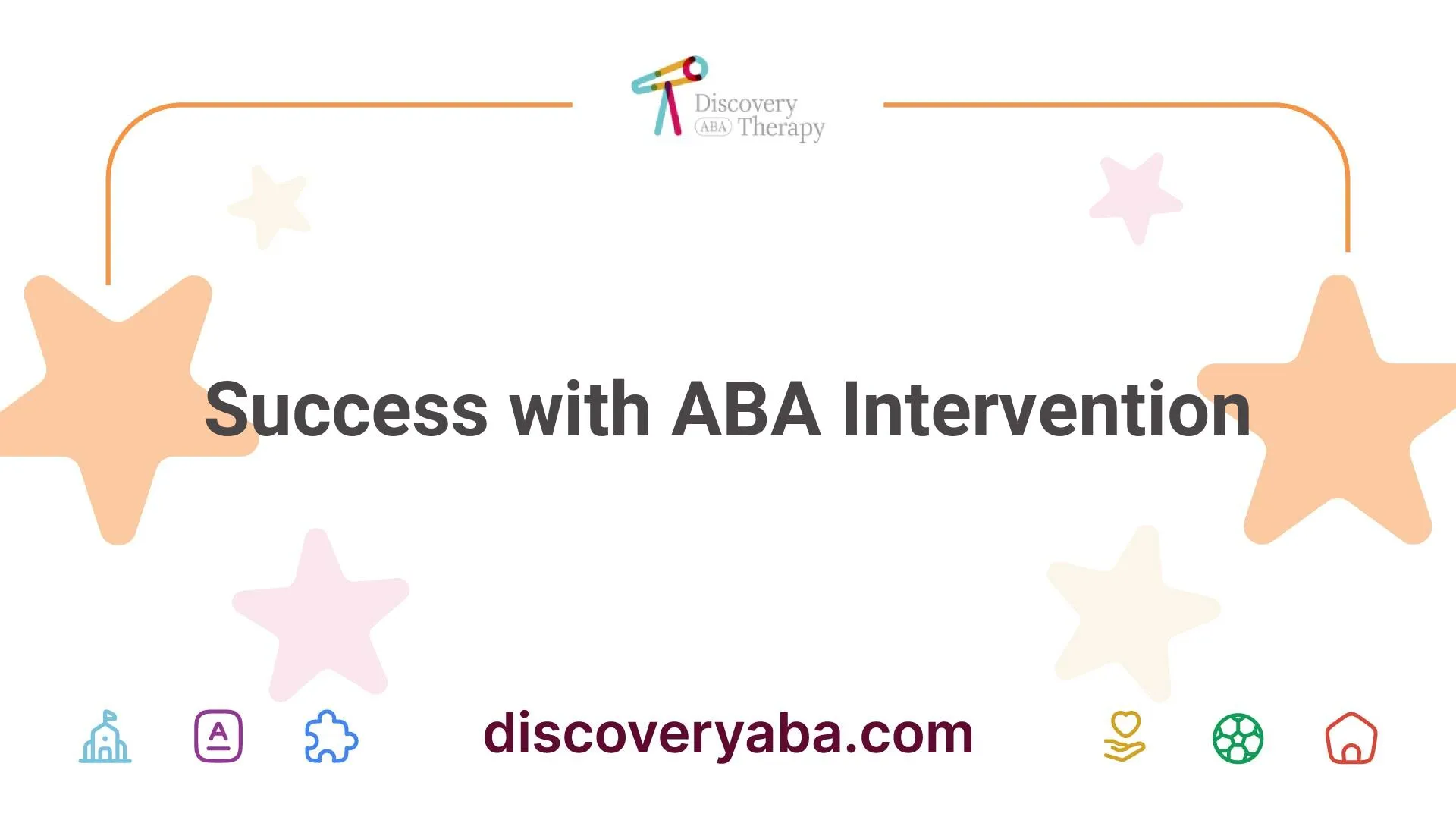
Success with ABA Intervention
Applied Behavior Analysis (ABA) interventions have been proven to produce significant advantages for individuals with autism, particularly in academic settings. These positive outcomes stem from tailored programs that address the specific needs of each child while incorporating various evidence-based techniques.
Positive Outcomes with ABA
When implemented correctly, ABA strategies can lead to noteworthy advancements in various areas of life for individuals with autism. Research indicates that ABA interventions generally yield a medium to large effect in critical domains including language development, intellectual functioning, and social skills. For instance, a recent study tracking 98 autistic children over a month showed statistically significant improvements in target behaviors due to ABA treatment [8].
Area of ImprovementEffect SizeLanguage DevelopmentMedium to LargeIntellectual FunctioningMedium to LargeSocial SkillsMedium to Large
Additionally, individualized ABA programs foster a sense of empowerment and motivation. This personalizes each individual's goals and interventions, which has been shown to enhance engagement throughout the program and ultimately lead to greater satisfaction with the therapeutic process [2].
Behavioral Improvements through ABA
ABA also focuses on constructing intervention strategies that define antecedents and consequences, which systematically improve behavior. The approach not only works to enhance academic skills but also addresses vital behavioral challenges. For example, strategies like functional behavior analysis and prompting facilitate the learning of new skills while decreasing problem behaviors.
Overall, ABA is versatile and applicable not only within academic settings but extends to various aspects of daily living, making it an essential tool for promoting success in individuals with autism.
References
[2]:
[3]:
[4]:
[5]:
[6]:
[7]:
[8]:
Does Your Child Have An Autism Diagnosis?
Learn More About How ABA Therapy Can Help
Find More Articles
Contact us
North Carolina, Nevada, Utah, Virginia
New Hampshire, Maine
Arizona, Colorado, Georgia, New Mexico, Oklahoma, Texas
.avif)




































































































